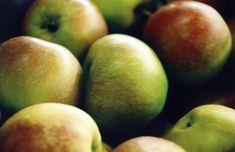
Almost a third of New Zealand’s growers have signed up to its nil-residues project, NZ Apple Futures.
“New Zealand is a high-cost producer a long way from Europe and needs to offer high-quality product at premium prices,” said Peter Beaven, Pipfruit NZ ceo. “That is why we have introduced the NZ Apple Futures project - a three year NZ$2.7m (£935,000) programme designed to target nil-residue production across our whole industry, starting this year. Already 30 per cent of our growers have signed up for it.”
New Zealand will be clearing the UK market in a matter of weeks, and total shipments across all varieties have risen to 3.5 million cases compared with 3.3m cases in 2006. “Total shipments of Braeburn are very similar to last year: 1.82m cases compared with 1.74m last year,” said Beaven. Cox was about 400,000 cases, while Jazz and Pink Lady both grew to around the 150,000-case mark. Royal Gala was about 900,000 cases.”
Royal Gala has been running a little short in the UK, and so NZ shippers have moved volumes from the continent to the UK. “New Zealand has become the principal supplier of late Royal Gala from June onwards into the UK, because our fruit tends to have better keeping qualities than other southern-hemisphere origins and we are more consistent at getting harvest and cool chain right,” said Beaven. “It is common for fruit to move across the Channel, and has more to do with the UK crop being short because of your weather conditions.”
This season NZ fruit has been priced comparably with last year, with Gala prices a little stronger these last few weeks towards the end of the season and Braeburn slightly down.
“There has been good opportunity for NZ to supply late Pink Lady,” said Beaven. “This is a slot taken with Australian fruit in previous years, but they have had significant supply issues because of their difficult 2007 growing season. Jazz continues to grow.”
But the problem this year has been the NZ exchange rate, which has hit historic highs against European currencies, hampering returns to growers.



